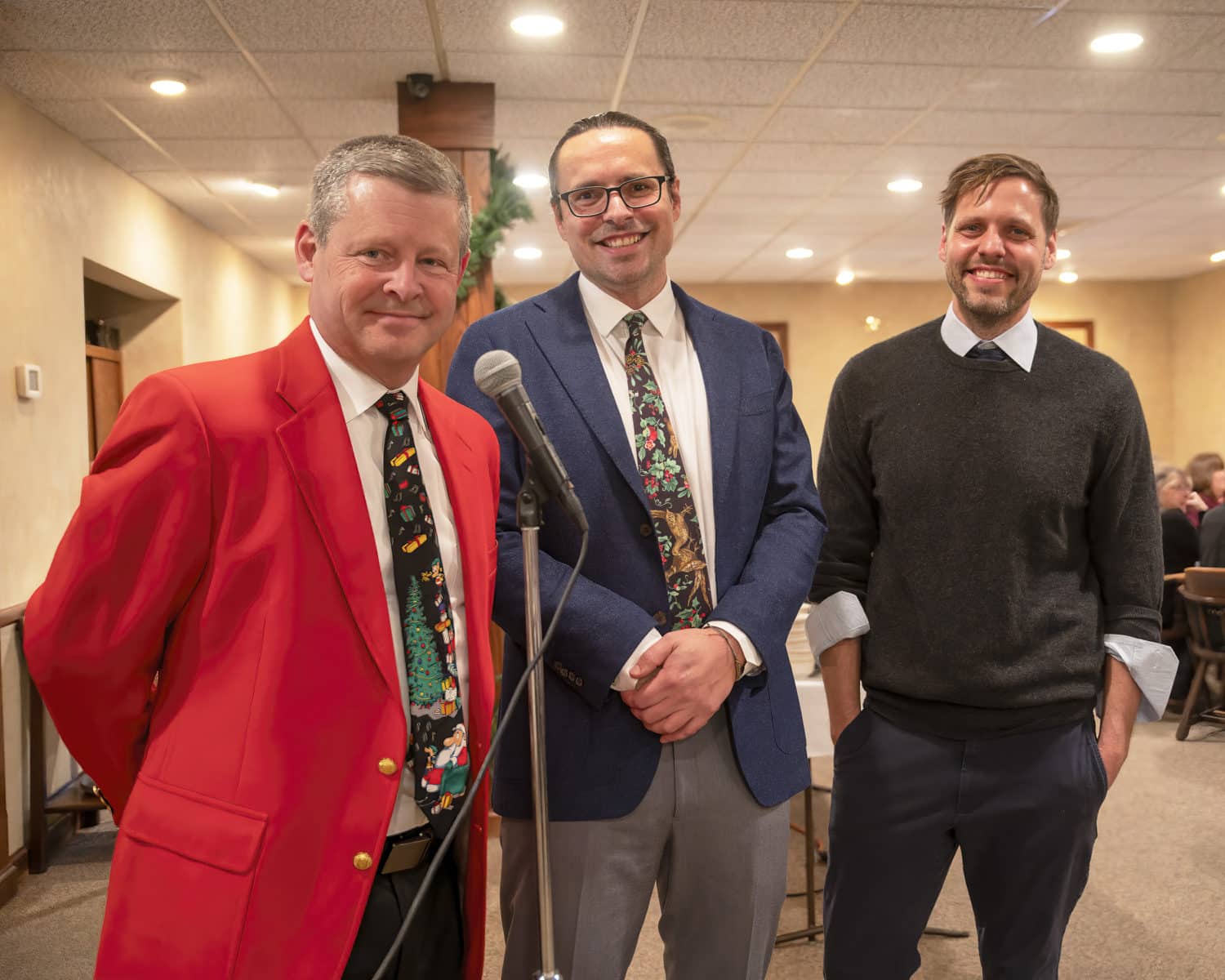BRADFORD, Pa. – Halloran Philanthropies has given a gift of $700,000 to the University of Pittsburgh at Bradford to be used to complete the construction of and purchase specialized equipment for the new George B. Duke Engineering and Information Technologies Building. 
The gift will be used in part to equip the fluid dynamics lab and makerspace, two of several unique and innovative spaces in the new building, with several pieces, including a wind tunnel and 3D printing and scanning for rapid prototyping.
“When our father Harry Halloran Jr. passed nearly one year ago, he left a rich legacy of philanthropy, vision and entrepreneurship,” said Brian Halloran, executive director of Halloran Philanthropies and one of Harry’s four sons.
Neil Halloran added, “Our father was a businessperson, a philanthropist, a big thinker and a kind soul. He pursued so many interests, launched so many ventures and impacted so many lives. Harry was always enthusiastically supportive of efforts to promote economic growth in Bradford, especially when it involved entrepreneurship and technological innovation.”
In that spirit, Halloran Philanthropies gears its giving toward business tools and educational programs to empower individuals who can make a difference.
These new labs, as well as the rest of the building, will open to students when the spring semester starts on Jan. 9. The Duke Building will be home to the university’s two new engineering technology majors –– mechanical engineering technology and energy engineering technology –– as well as the existing programs of computer information systems and technology, energy science and technology, and information systems.
“We are deeply grateful to the Halloran family for their generosity and continuing support of our programs,” said Rick Esch, Pitt-Bradford’s president. “Halloran Philanthropies, which was founded by Harry Halloran Jr., has been a longtime and generous supporter of our campus. The Hallorans specifically chose to support these two spaces because Harry was actively involved in the renewable energy field and was passionate about the kinds of innovation that will occur in these two areas.”
The fluid dynamics lab and makerspace will be complementary spaces, allowing students to take their understanding of engineering principles and apply them throughout the process –– from theory, simulation, design, prototype, development, manufacturing, and in situ validation. For example, students studying the optimization of steam turbine impeller design will be able to generate 3D printed prototypes of the design, verify simulation results in a wind tunnel, then manufacture a scaled model and validate the efficiency of the new design by implementing it into an actual Rankine cycle steam turbine power generation model equipped with data acquisition hardware.
Additionally, the makerspace will provide valuable opportunities to the community by filling a vital gap in resources for start-up manufacturers as well as established industries looking to enhance capabilities within product research and development. This community benefit also will enhance our students’ exposure to entrepreneurial endeavors and provide more opportunities to work with industry on projects, internships, and co-ops.
“Halloran Philanthropies uses a proven, multi-pronged approach that has boosted economies across the U.S. by putting in place what is needed for entrepreneurs to put their ideas to work locally,” Brian Halloran said.
He added, “Pitt-Bradford is one of several critical components in building a flourishing entrepreneurial ecosystem in Bradford and McKean County. A successful ecosystem must combine entrepreneurship education, community engagement, investment opportunity, local institutional support and access to broader networks.”
Jon Giberson, president and chief operating officer at American Refining Group Inc. (ARG), said, “ARG’s Bradford refinery marked 25 years of ownership by the Halloran family this year and these principles Brian and Neil have identified are the foundation for how we approach business and corporate citizenship.
“This grant strengthens an already well-established and mutually beneficial partnership between Pitt-Bradford and our area’s businesses and industries, not just ARG,” Giberson added.
In addition to the makerspace and fluids dynamics lab, the new building will house several other innovative and specialized areas:
- A circuit lab with bench space for soldering, function generators, analog and digital microcontrollers, spectrum analyzer, and oscilloscopes.
- A measurements lab where students will be able to work with sensors and automation in a space containing programmable logic controllers, wireless sensing hardware, ultrasonic flaw detectors, and more.
- A machine shop with computer-controlled plasma cutter, CNC milling machines and lathes, variable speed drill presses, band saws, machine presses, disc and belt grinders, welders, and rapid prototype machines.
- A strength and materials lab, where students can test, measure, and destroy their creations by pulling, pushing, and hitting them with a compression/tension tester and a dynamic fatigue tester as well as testers for impact, hardness, and torque.
- An expanded Systems, Networks and Projects Lab –– known as a SNAP Lab –– to enable students to practice setting up small computer and data operation centers.
- A FLEX Lab to give students the space they need to gather data, perform analyses, and creative virtual and scaled prototypes for new products and services.
- A virtual reality lab equipped with a presentation platform and a huge screen on which students can present projects as well as an 18-foot ceiling to allow for hanging sensors and cameras.
The building also will include several areas where students from different academic disciplines can collaborate, challenge and inspire each other, and turn their ideas to reality, including a two-story atrium, study rooms and a project lab.
A dedication for the Duke Building will be held March 31, which will give residents the opportunity to tour the new building and see the unique labs where students are working on innovative projects.
Seen in the photo are (from left) ARG President and COO Jon Giberson, ARG Board of Directors Chairman Neil Halloran and Halloran Philanthropies Executive Director Brian Halloran.
“Giving is not just about making a donation. It is about making a difference.” – Kathy Calvin
